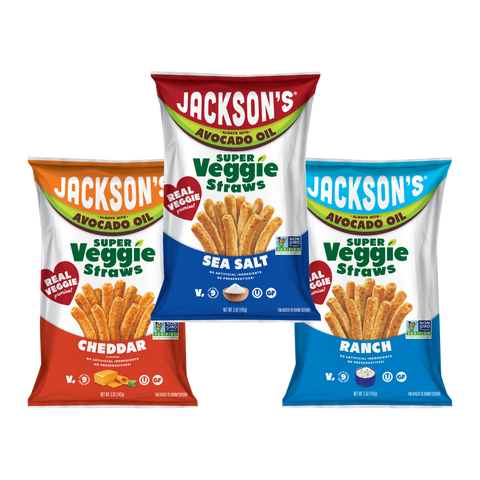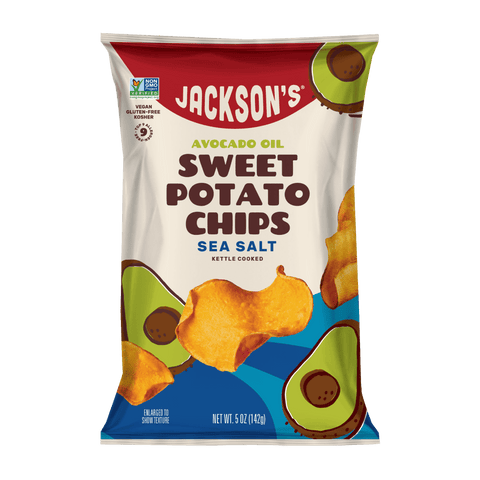The Truth About Soybean Oil: Unpacking the Benefits and Risks

Due to its abundance and cheap price, it’s no surprise soybean oil is a common choice for frying, dressing, and even baking. However, as the conversation around health and nutrition evolves, more people are beginning to question the safety and health implications of this common seed oil. In this article, we’ll delve into the nutritional profile and uses of soybean oil while highlighting potential downsides and health risks, so you can make informed decisions for your health and well-being.
The Nutritional Profile of Soybean Oil
Essential Fatty Acids
Soybean oil is often promoted for its high levels of essential fatty acids, particularly omega-3 and omega-6 fatty acids. These fats are crucial for maintaining healthy cell membranes and supporting the body's inflammatory responses. However, it's important to note that the standard Western diet is already heavily skewed toward omega-6 intake, often leading to an imbalance that can contribute to various health issues.
Vitamins and Minerals
In addition to fatty acids, soybean oil contains several vitamins and minerals. It provides a decent amount of vitamin K, which plays a key role in blood clotting and bone health. However, the oil itself lacks many other nutrients that are typically found in whole soybeans, such as fiber and protein.
Comparison with Other Cooking Oils
When comparing soybean oil to other cooking oils, it generally has a lower saturated fat content than coconut oil but higher than olive oil. It also has a higher smoke point, which makes it suitable for high-heat cooking methods. Yet, some studies suggest that using oils with a high amount of polyunsaturated fats like soybean oil can lead to oxidative stress, which may be detrimental to health.
Common Uses of Soybean Oil
Cooking Methods: Frying, Baking, and Sautéing
Soybean oil’s high smoke point means it’s favored for frying and sautéing. It's commonly used in fast food establishments and can be found in many frozen and packaged foods. Besides frying, it's also effective in baking and sautéing, offering a neutral flavor that allows the ingredients to come through.
Applications in Dressings and Marinades
In salad dressings and marinades, soybean oil is used for its consistency and ability to emulsify. Its mild taste makes it an often-used choice among consumers who prefer lighter flavors. However, the common practice of using it in processed foods has raised concerns among health advocates.
Incorporating in Baked Goods
Many commercial baked goods, especially those claiming to be "gluten-free," often contain soybean oil. While this adds texture and moisture to the products, it's worth considering the overall health implications of consuming these items, especially if you're looking to avoid seed oils.
Downsides of Soybean Oil
Health Risks: Diabetes and Liver Disease
Research has indicated that the high levels of omega-6 fatty acids in soybean oil can contribute to a range of health issues. Studies have linked excessive consumption of this seed oil to complications such as diabetes and liver disease. It’s important to consider that while fats are essential to a balanced diet, too much of certain types can lead to an increased risk of chronic diseases.
Allergies and Sensitivities
Some individuals may experience allergies or sensitivities to soybean oil. This can manifest in various ways, such as skin rashes or gastrointestinal distress. For those who are allergic to soy in general, it's important to avoid soybean oil just as you would avoid peanuts or dairy.
Interesterified Soybean Oil
Interesterified soybean oil is a modified form that has become more common in processed foods. Unfortunately, animal studies suggest that this version of soybean oil may be particularly harmful, leading to weight gain, impaired glucose tolerance, and adverse liver markers. This raises concerns that not all forms of soybean oil are healthful, so it’s crucial to be aware of what you’re consuming.
Is a Seed Oil
It's essential to note that soybean oil is a seed oil, which has sparked debates about its health implications. Seed oils are often processed at high temperatures with chemical additives that can alter their composition. Thus, many argue that these oils shouldn’t be a primary source of fat in our diets.
Benefits of Soybean Oil
High Smoke Point and Cooking Versatility
Despite its downsides, soybean oil has several attractive qualities. Its high smoke point of around 453°F (234°C) makes it an excellent choice for high-temperature cooking methods like frying. This means those crispy fries you love can be safely cooked in soybean oil!
Potential Cardiovascular Benefits
Some studies suggest that when consumed in moderation, soybean oil may have cardiovascular benefits due to its omega-3 fatty acid content, which is found to lower bad cholesterol levels. However, moderation is key, as excessive intake can lead to a host of health problems.
Cheap
Another advantage of soybean oil is its affordability. Being one of the most produced vegetable oils in the world, it is often less expensive than olive or avocado oil. This makes it a go-to option for those looking to cut costs.
Bioengineering Challenges
Efforts to bioengineer soybean oil to improve its fatty acid profile have yielded mixed results. While some advancements aim to enhance nutritional benefits, they have also led to challenges like impaired germination or low protein content in soybean crops. This emphasizes the need for further research into how these modifications affect both soy production and consumer health.
Conclusion
In summary, while soybean oil is a widely used cooking oil with certain benefits, such as a high smoke point and low price, it’s essential to weigh these against potential downsides. The health risks associated with excessive consumption, concerns around allergies, and the presence of interesterified soybean oil cannot be overlooked. If you're trying to avoid seed oils, consider exploring alternatives like olive and avocado oil and foods made with non seed oils like Jackson’s.
Making informed food choices is part of leading a healthy lifestyle. Arming yourself with knowledge about common ingredients like soybean oil can help steer your diet in a direction that supports your well-being. Be mindful of the oils used in your favorite dishes, foods, and snacks.
No Seedy Oils Here
Avocado Oil Goodness Meets Irresistible Flavor - No Seed Oils Here!
-

 8 Pack New Arrival!Variety Pack Super Veggie Straws in Avocado Oil 5oz (Pack of 8)
8 Pack New Arrival!Variety Pack Super Veggie Straws in Avocado Oil 5oz (Pack of 8)Variety Pack
Super Veggie Straws in Avocado Oil
- Size
- 5oz bags
- Regular price
- $35.99
- Sale price
- $35.99
- Regular price
-
$35.99 (Liquid error (snippets/product-price line 131): divided by 0 per bag) - Unit price
- per
-

 8 Pack New Arrival!Sea Salt Variety Pack Snacks in Avocado Oil 5oz (Pack of 8)
8 Pack New Arrival!Sea Salt Variety Pack Snacks in Avocado Oil 5oz (Pack of 8)Variety Pack Snacks
Sea Salt in Avocado Oil
- Size
- 5oz bags
- Regular price
- $35.99
- Sale price
- $35.99
- Regular price
-
$35.99 (Liquid error (snippets/product-price line 131): divided by 0 per bag) - Unit price
- per
-

 8 Pack Best SellerSea Salt Sweet Potato Chips in Avocado Oil 5oz (Pack of 8)
8 Pack Best SellerSea Salt Sweet Potato Chips in Avocado Oil 5oz (Pack of 8)Sea Salt
Sweet Potato Chips in Avocado Oil
- Size
- 5oz bags
- Regular price
- $35.99
- Sale price
- $35.99
- Regular price
-
$35.99 (Liquid error (snippets/product-price line 131): divided by 0 per bag) - Unit price
- per
-

 8 PackVariety Pack Kettle Chips in Avocado Oil 5oz (Pack of 8)
8 PackVariety Pack Kettle Chips in Avocado Oil 5oz (Pack of 8)Variety Pack
Kettle Chips in Avocado Oil
- Size
- 5oz bags
- Regular price
- $35.99
- Sale price
- $35.99
- Regular price
-
$35.99 (Liquid error (snippets/product-price line 131): divided by 0 per bag) - Unit price
- per





